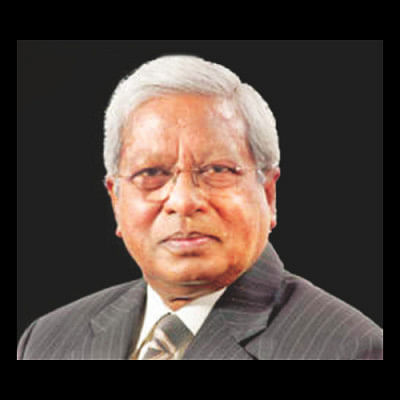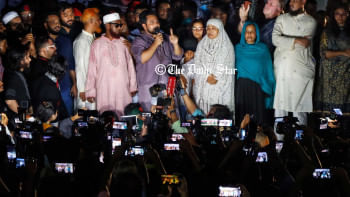Beyond national borders

Brac has gone beyond the national boundary to take the benefits of its programmes and innovations in farm sector to other countries of the world.
Founded by this year's prestigious World Food Prize recipient Sir Fazle Hasan Abed, Brac has its development activities running in as many as 11 countries. Its agricultural programmes have mainly reached the African countries i.e. Uganda, Tanzania, Sierra Leone, Liberia and South Sudan.
In Bangladesh, one in every five hybrid rice farmers and one in every three hybrid maize growers now depend on Brac Seed and Agro Enterprise for quality seeds.
About 1.5 million farmers have purchased seeds from Brac till date this year, meeting 23 percent of the hybrid rice seed demand and 31 percent of hybrid maize seed demand nationally.
Sir Abed, who was knighted by the British Crown in 2009, founded Brac, the organisation originally known as Bangladesh Rural Advancement Committee, as a temporary relief organisation to help the country recover from the 1970 typhoon that killed about 500,000 people and the subsequent war in 1971 to win independence from Pakistan.
Brac has grown into the world's largest non-governmental organisation focused on alleviating poverty -- estimated to have helped more than 150 million people out of poverty in Africa and Asia.
On Thursday night, Sir Abed was awarded the 2015 World Food Prize for his outstanding contribution to enhancing the world's production and distribution of food to those most in need.
The prestigious prize, known as Nobel Prize for food and agriculture, was conferred on him at an event at the Iowa State Capitol Building in Iowa, USA. The award includes a cash prize of $ 250,000.
"I must acknowledge that the award does not belong to me alone, it is the recognition of Brac's work over the last 43 years in providing pathways out of poverty for millions of people in Bangladesh and other countries in Africa and Asia," said Abed, receiving the award.
The global reach of Brac, is unprecedented, with more than 110,000 employees around the world, and a further 150,000 BRAC-trained entrepreneurs providing low-cost goods and services (such as seeds, medicine and training) to their rural neighbours.
In Bangladesh, Brac-developed agricultural and food security programmes (AFSP) have helped over half a million farmers gain access to efficient farming techniques, proven technologies and financial support services.
Through farmers' participation in field demonstrations and training, these programmes have helped increase yields through crop intensification, research and development on new seed varieties and provision of quality seeds at fair prices.
Talking to The Daily Star yesterday, Brac Executive Director Muhammad Musa said, "At Brac we work with the farmers, we work for the farmers. We try to link them up with the market. We operate farmers' field school."
In 2001, Brac initiated an agricultural credit programme through the north-west crop diversification project. Coordinating all activities on agricultural research, development, agricultural credit and marketing, a new agriculture and food security programme (AFSP) was launched in 2009.
The goal of the programme is to contribute to achieving food security and the reduction of hunger and malnutrition through increased environmentally sustainable agricultural production.
In the present phase, Brac has made significant impact on improving the livelihood status of more than 88,000 farm households in areas vulnerable to climate change.
Brac carries out participatory experiments with farmers to test the validity of using certain technology and to efficiently deliver cutting-edge agriculture and aquaculture practices to ecologically adverse regions. Brac seeks to convert single-crop areas to double or triple-crop by introducing stress-tolerant and high value crop varieties.
To help achieve food security, Brac has also initiated three agricultural microfinance projects: Borgachashi Unnoyon Prokolpo (BCUP) for tenant farmers, the north-west diversification project (NCDP), and the secondary-crop diversification project (SCDP), each offering a combination of credit, savings, access to productive assets, and training.
In 2014, Brac added over 70,000 members to the projects. Brac provided loans to 402,000 borrowers, and agricultural training to 309,000 men and women. The project takes a 'credit plus' approach that combines access to customised loans of USD 200 - 1500, savings products, and technical training. It supports ventures ranging from vegetable cultivation, livestock, duck and poultry farming, aquaculture, as well as investments in land, and agricultural machinery.
Brac has initiated research and development activities on hybrid rice and maize since the inception of hybrid rice research and development activities in Bangladesh. It introduced parent materials from China and evaluated it under Bangladesh conditions. Brac released over a dozen of hybrid rice, maize and vegetable varieties.
Brac is credited for pioneering and promoting maize cultivation in Bangladesh, thereby establishing the poultry feed industry, which has previously been fully dependent on imported maize.
Members of the Brac family told The Daily Star that Sir Abed's winning the food prize is also an honour for Bangladesh and it should encourage all working for the cause of food security and nutrition.
The World Food Prize was conceived by Dr Norman E Borlaug, recipient of the 1970 Nobel Peace Prize. Since 1986, The World Food Prize has honoured outstanding individuals who have made vital contributions to improving the quality, quantity or availability of food throughout the world.
Other past prize winners include Nobel Peace Prize winner Dr Muhammad Yunus, pioneer of Indian green revolution Prof MS Swaminathan, pioneer of hybrid rice Professor Yuan Longping of China, former president of Brazil Luis Inácio Lula Da Silva, ex-President of Ghana John Kufour, US Senators Bob Dole and George McGovern, and former Executive Director of the United Nations World Food Programme Catherine Bertini.

 For all latest news, follow The Daily Star's Google News channel.
For all latest news, follow The Daily Star's Google News channel. 



Comments